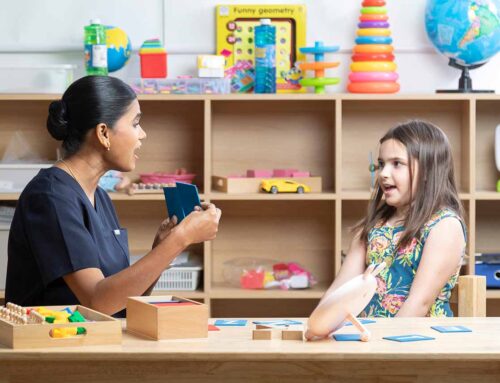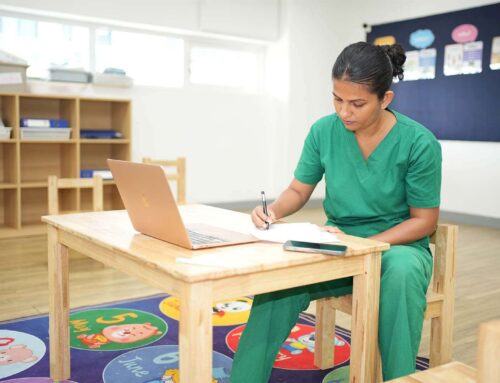One of the most effective—and often overlooked—ways to nurture a child’s speech and social communication is through shared emotional experiences. Moments like giving or receiving a gift, telling jokes, or sharing surprises help children practice expressive language, understand emotions, and build deeper social connections.
At OrbRom Center in Phnom Penh, we integrate these joyful experiences into our speech therapy sessions. For children with speech delays, autism, or social communication difficulties, these emotionally engaging interactions can be transformative.
Why Emotionally Charged Moments Boost Communication
Surprise, joy, excitement, and gratitude are all rich in communication opportunities. When a child gives or receives a gift, they naturally engage in social language. They use phrases like:
-
“This is for you!”
-
“Thank you!”
-
“I love it!”
-
“What is it?”
These expressions build not just vocabulary but also pragmatic language—the social side of communication. Children learn turn-taking, body language cues, eye contact, and tone of voice, all critical for building relationships.
Teaching Language Through Giving and Receiving
At OrbRom Center, our speech-language therapists often use pretend play and role-play scenarios involving gift-giving, surprises, and celebrations. These activities help children practice:
-
Initiating conversation: “I have something for you.”
-
Responding appropriately: “Thank you! That’s so nice.”
-
Understanding social scripts: what to say in birthday parties, holidays, or classroom exchanges
-
Emotion vocabulary: happy, excited, surprised, grateful
We also encourage parents to recreate these moments at home with simple props or real events to reinforce the skills learned in therapy.
Supporting Children with Social Communication Challenges
Children with autism spectrum disorder or pragmatic language delays often struggle with understanding unspoken rules of communication. They may not naturally respond to a gift or show excitement. Through therapy at OrbRom Center, we use structured play and real-life scenarios to teach these skills in a fun, safe, and supportive way.
For example, a therapist might coach a child through a role-play where they receive a toy and are prompted to use polite language, ask questions, and show appreciation.
These rehearsed scenarios make real-life moments easier—and more meaningful.
Real Life Practice in Phnom Penh Homes
Phnom Penh families can easily create communication-rich opportunities by incorporating small surprises, gift exchanges, or storytelling games. Whether it’s a birthday, a reward for good behavior, or a “just because” moment, the emotional spark leads to authentic conversation.
Tips for parents:
-
Use headphones, toys, or books as pretend gifts
-
Model and teach phrases like “Can I open it?” or “Do you like it?”
-
Narrate the emotions: “You’re smiling! You’re excited!”
With consistency, these playful interactions can make a big difference in your child’s confidence and expressive language skills.
👉 Learn more about our Speech Therapy Services
We are the only Preschool specialized on children with special needs in PhnomPenh.
- Internationally qualified teachers
- Cambodia’s largest sensory room
- Outdoor swimming pool
- Covered outdoor playground📞 Phone: 077.455.993
Telegram Link: https://t.me/OrbRom






